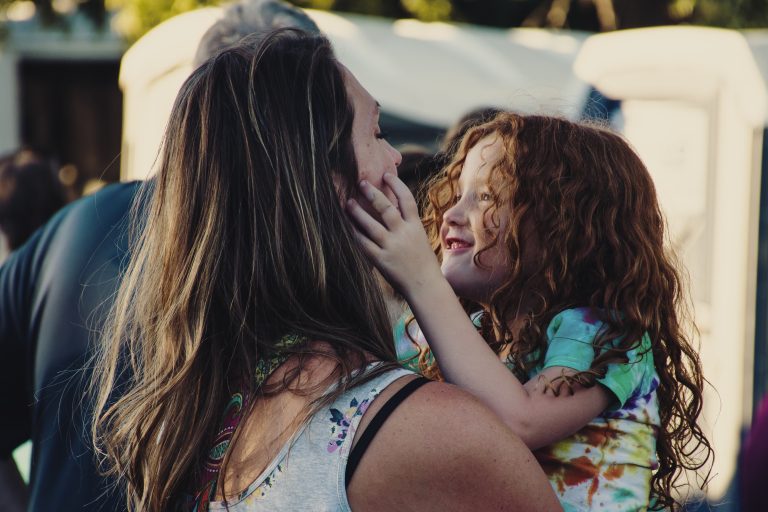
This column contains information that is vital to a healthy Mother-Daughter relationship. Remember the little baby girl with the delicate features that you could dress up and cuddle? You were the center of her world, and you were in control. She needed you. It was wonderful to feel so close, and to think that it would always be like this. She would always love you and want you close by. When she grew up, you would be friends.
Then something went wrong. As she entered adolescence, you ceased to be the center of her world. She did not always want you around. She no longer wanted to be cuddled. The more you tried to regain that closeness, to pull her back to you, the more she pulled away.
This is a very common scenario. Often a Mother feels hurt, wondering where she went wrong. When she cannot seem to rectify the situation, the hurt turns to anger and resentment. After loving and caring for this child all of these years, to feel rejected seems a bitter twist, threatening to destroy our dream of a close and pleasant lifelong relationship. Panic sets in as the Mother redoubles her efforts to make the daughter want to be closer. Either she tries to make the daughter talk it out and resolve the issue, or she may resort to anger and punishment.
Nothing works because the daughter does not want what the Mother wants. If she tries to explain this to her Mother, the Mother’s feelings are hurt even more. (We do not want to hear that she does not need or want us in her life as much.) The more we pressure her, the more exasperated she becomes, and the less she wants to do with us. The more we lay guilt on her, the more helpless she feels, and the more she resents us for putting the burden of our wellbeing on her shoulders.
She is right about this: we cannot make our children responsible for our happiness. Further, she is following the developmental pattern that has been there all along. Remember when she wanted to hold the bottle herself? Remember when she grabbed the spoon out of your hand to feed herself, even if she mostly missed her mouth? Remember when she insisted on dressing herself, even when she had her pants on backwards?
All the way along there have been times when she has had to push us away in order to figure things out for herself. She did not want us to put the puzzle piece in its place even if it was hard for her, because she wanted the satisfaction of doing it herself. Sometimes she did not want to be picked up and held because she had other things on her mind. Our desire to be involved with her were rejected time and time again. We did not take it personally, because eventually she always came back and needed us again.
Well, this is exactly what happens in adolescence. Pushing us away, drawing into herself, and refusal to communicate are all natural parts of her growth. Some things she just needs to do herself, in her own way. Sometimes she just needs her own space. The way to support her at this stage is to continue to love her unconditionally.
Ask her what she needs from you. If she says she just wants to be alone sometimes, then honor that. If we can stay calm through this stage and not overreact to her apparent distancing, then she is free to approach us when she needs us. If we do not make her feel like a bad person because she is not fulfilling our needs, she will not have to pull so far away. If we don’t hold on too tightly, then she will feel free to come back any time. And she will.
Gwen Randall-Young is an author and award-winning psychologist. For permission to reprint this article, or to obtain books, CDs or MP3s, visit www.gwen.ca. Follow Gwen on Facebook for inspiration.
